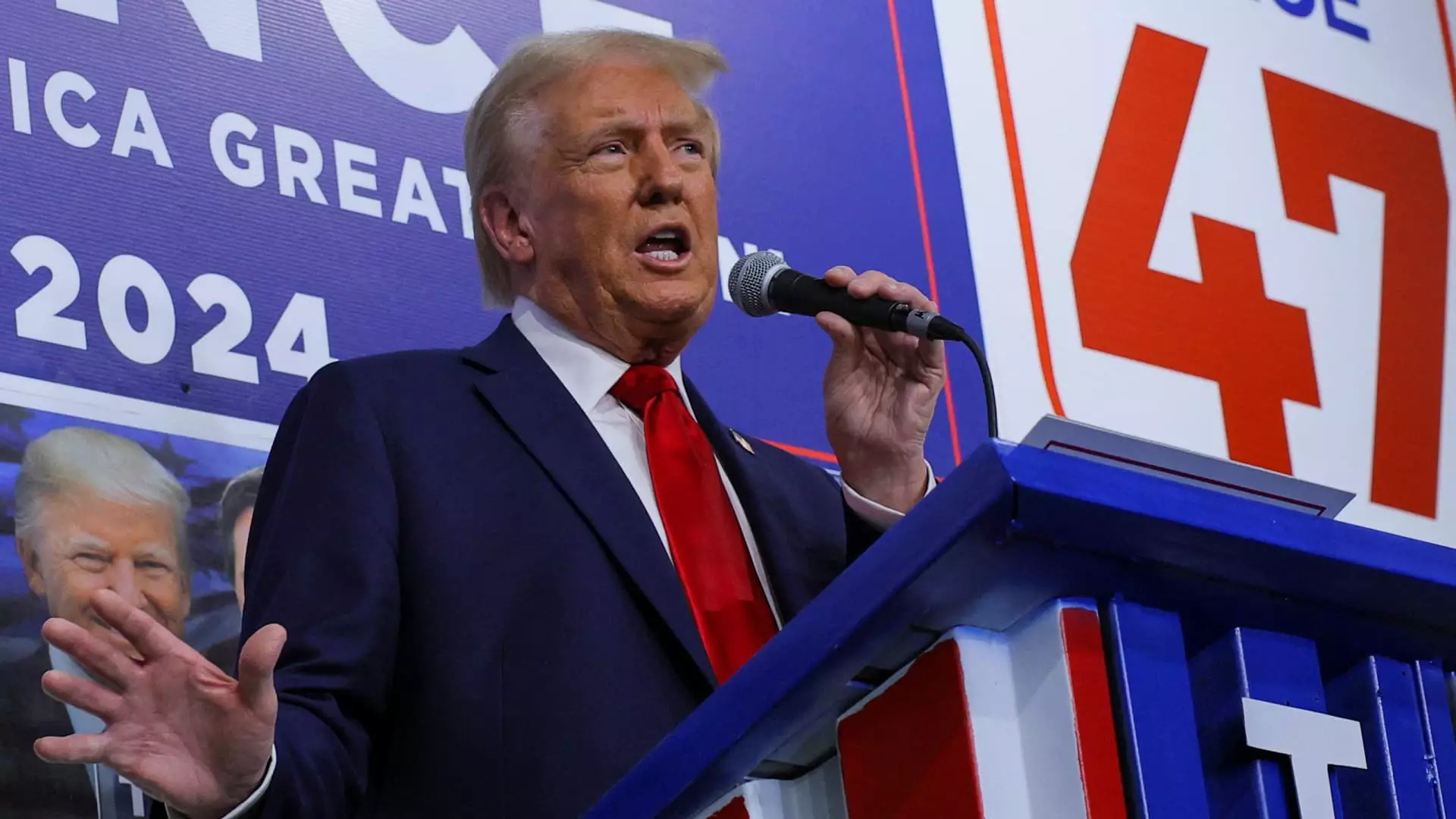A recent NBC News poll highlights a significant challenge for former President Donald Trump’s ongoing campaign: a troubling sentiment among voters regarding his proposed universal tariffs. The survey, conducted with 1,000 registered voters from October 4 to October 8, unveiled that 44% of respondents are less likely to support a candidate advocating for a broad 20% tariff on imports. In stark contrast, only 35% expressed that they would be more inclined to back such a candidate, while 19% indicated that it wouldn’t affect their decision. This poll indicates a broader hesitance from the electorate towards aggressive tariff policies, which could impede Trump’s larger economic strategy.
Trump’s rationale for imposing universal tariffs is couched in a belief that elevated tariffs will incentivize companies to establish operations within the U.S. Essentially, he argues that by making foreign production prohibitively expensive through tariffs, American manufacturing can be revitalized. “The higher the tariff, the more likely it is that the company will come into the United States and build a factory in the United States,” he stated in an interview, asserting that such measures are necessary for a prosperous economic landscape.
However, this approach simplifies complex global trade dynamics. By framing these tariffs as mechanisms for reviving American manufacturing, Trump leverages a narrative appealing to those nostalgic for domestic industrial strength. Yet, the stark reality of economic theory reveals that universal tariffs could create a ripple effect leading to increased consumer prices and potential economic isolation.
Among the critical voices challenging Trump’s ideas are economists who argue that broad tariffs primarily burden U.S. importers, which ultimately translates into higher costs for consumers. The notion that companies would rush to build factories domestically is overly optimistic and potentially misleading. In reality, businesses often make decisions based on a multitude of factors including labor availability, operational costs, and market access.
The criticism escalates when we consider inflation. With consumer prices already experiencing volatility influenced by post-pandemic trends, implementing blanket tariffs may escalate costs further. Economists caution that these tariff strategies could reignite inflationary pressures, which many voters actively seek to mitigate. Thus, Trump’s ambitious tariff goals could inadvertently undermine his appeal as a candidate focused on economic improvement.
Despite Trump’s staunch support within certain sections of the Republican Party, his tariff proposals face pushback even among party leaders. Prominent figures like Republican Senate Minority Leader Mitch McConnell have voiced skepticism, declaring that “tariffs raise prices for American consumers.” This internal division highlights the growing concern among Republican lawmakers regarding the potential fallout of such policies, revealing a rift that could have serious implications for the coherence and unity of the party heading into the election.
Additionally, Vice President Kamala Harris has effectively leveraged this backlash, labeling Trump’s tariffs as the “Trump sales tax.” By framing the tariffs negatively, she positions herself as a defender of ordinary Americans against what she describes as harmful economic policies. This line of attack not only energizes Democratic voters but also sows doubt among undecided voters who may view economic issues as paramount.
As the 2024 presidential election looms, the current administration has adopted a distinct stance toward trade that diverges from Trump’s sweeping tariff proposals. Although President Joe Biden has maintained some tariffs from Trump’s first term, they have focused on targeted sectors deemed strategic for U.S. interests. Treasury Secretary Janet Yellen emphasized the differences, stating, “We’ve put in place a narrow, carefully targeted set of tariffs….” This approach aims to foster domestic growth without imposing blanket taxes on the American consumer.
This targeted methodology sets a backdrop against which voters can evaluate differing economic philosophies between candidates. While Trump advocates for sweeping changes through universal tariffs, the Biden administration has opted for a more calculated approach, intent on maintaining international partnerships while also addressing domestic concerns.
As the election cycle progresses, the response to Trump’s universal tariffs may significantly shape voter sentiment and influence campaign strategies for all parties involved. The NBC News poll emphasizes the complexities of tariff politics and the necessity for candidates to balance ambitious proposals with the realities faced by American consumers. Ultimately, the intersection of economic policy, voter perception, and political maneuvering will likely define the upcoming electoral landscape, making it crucial for candidates to listen and adapt to the concerns of the electorate.


Leave a Reply